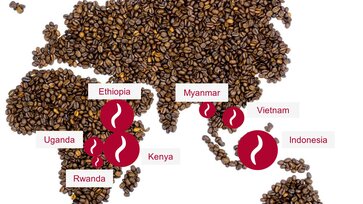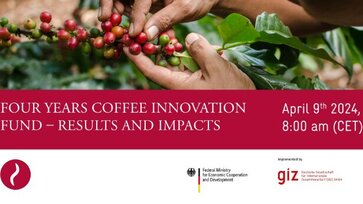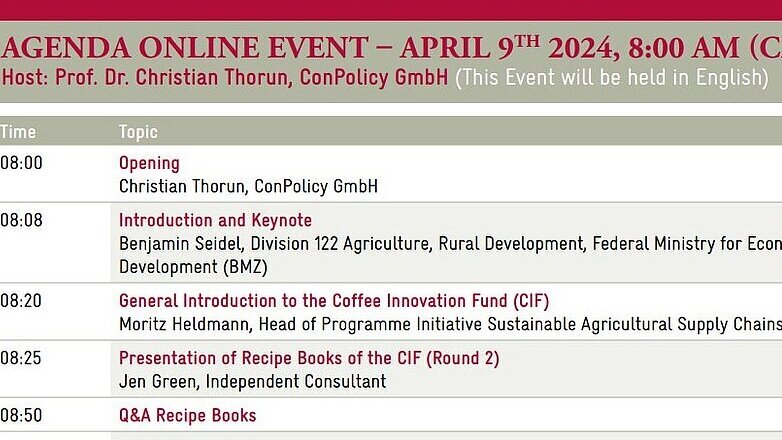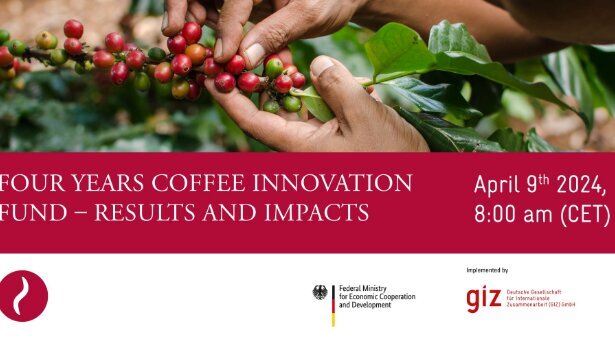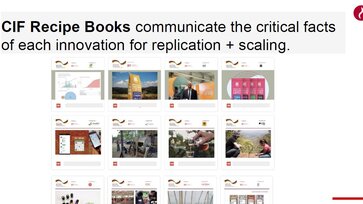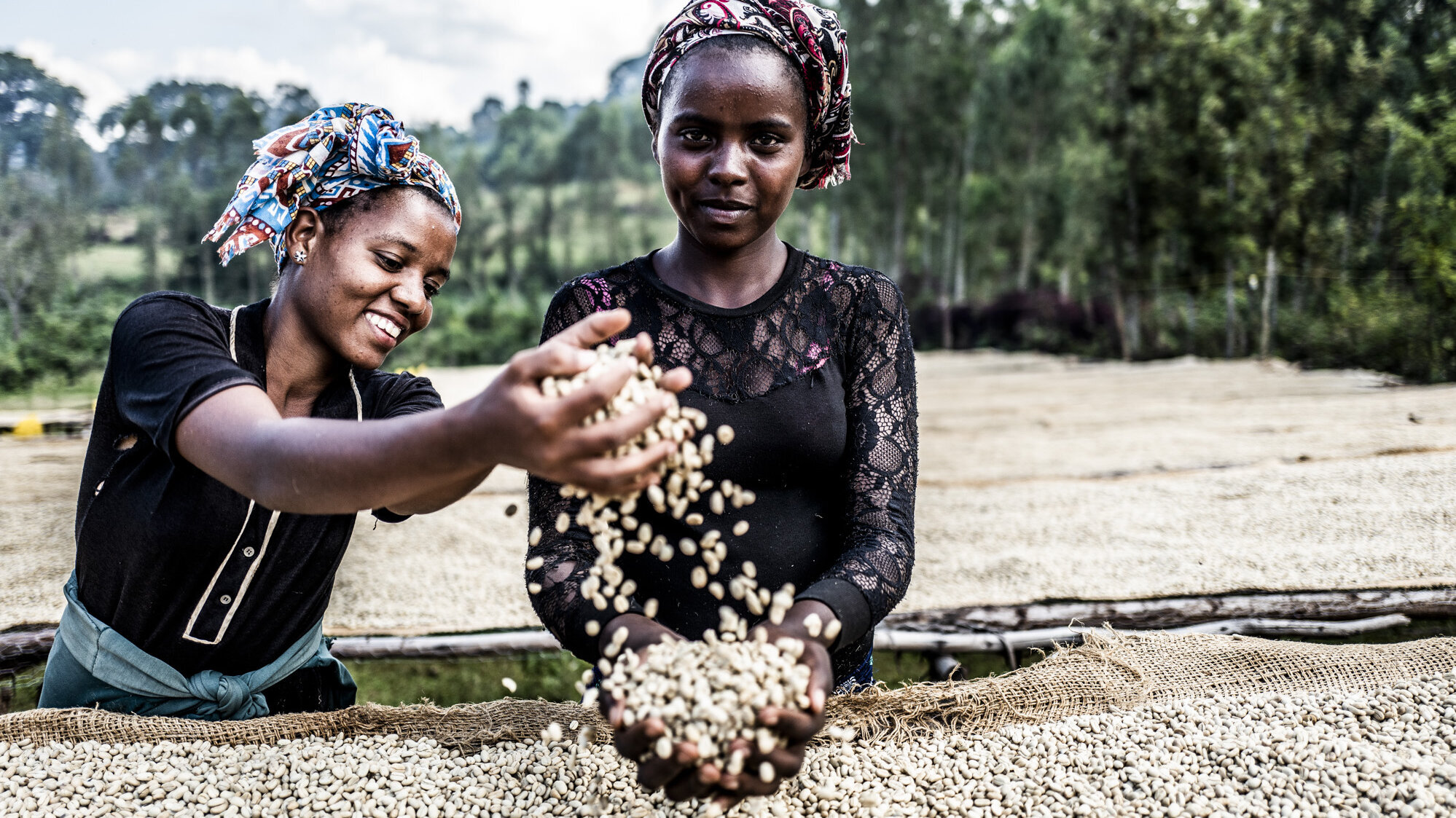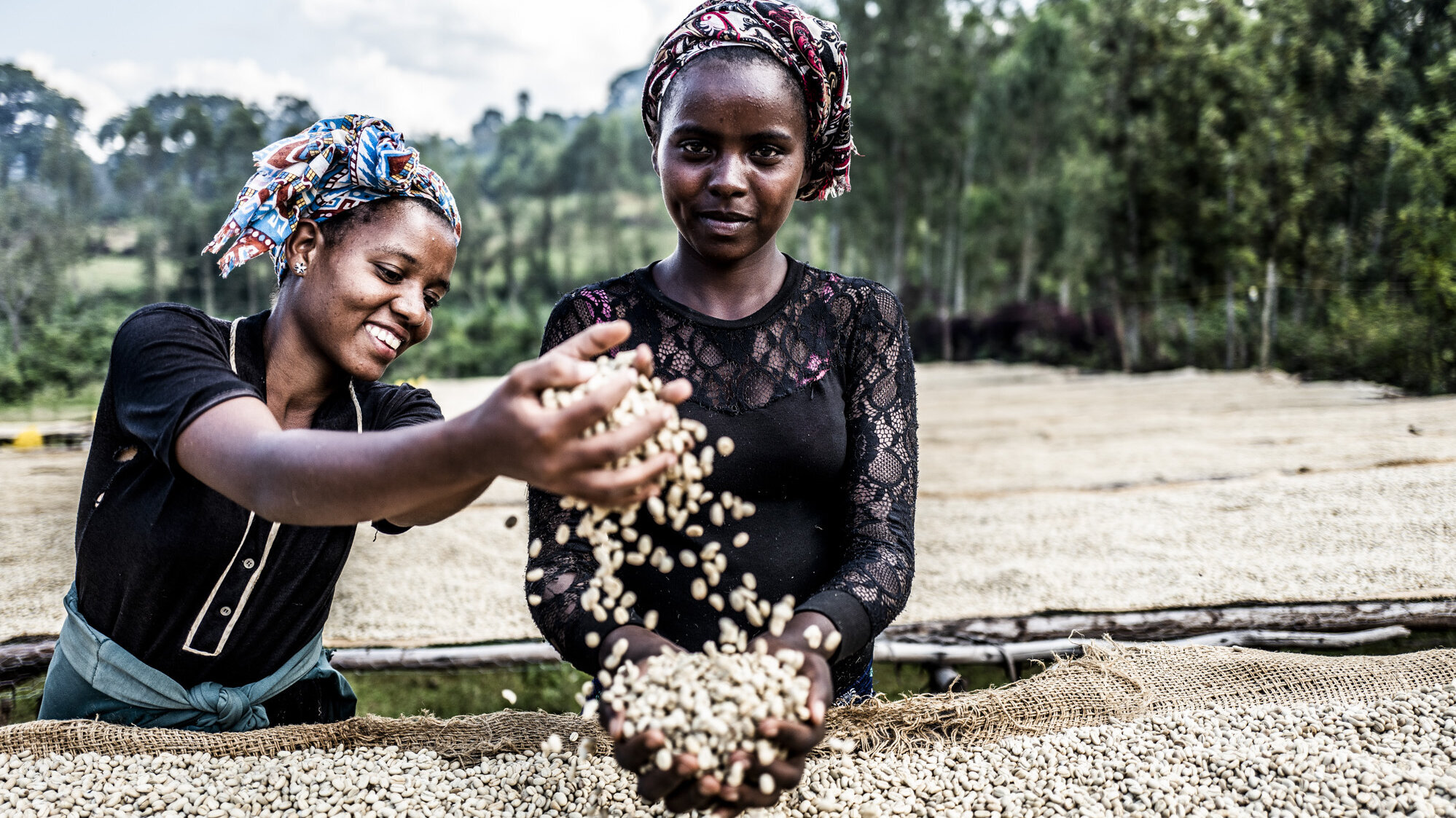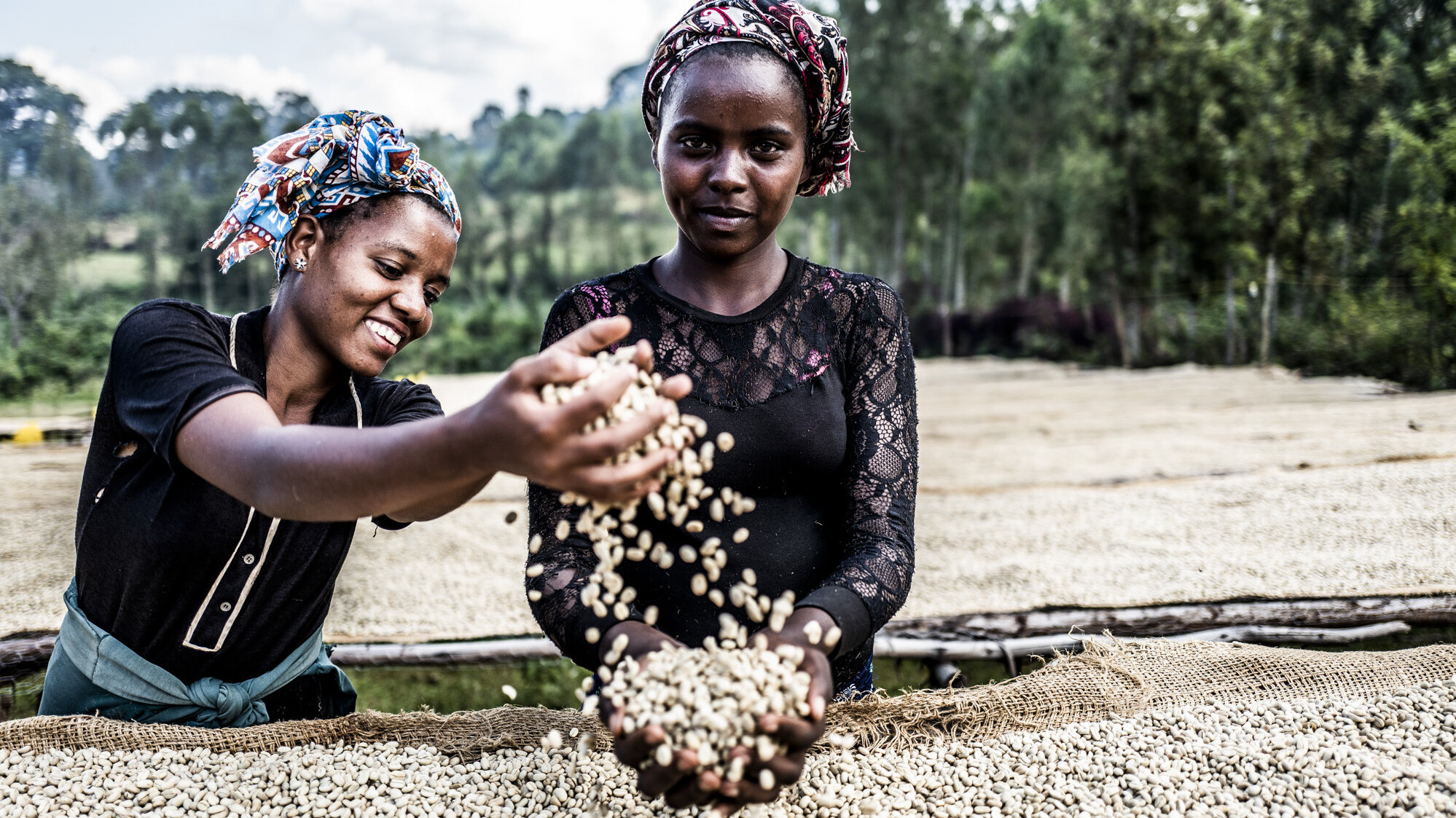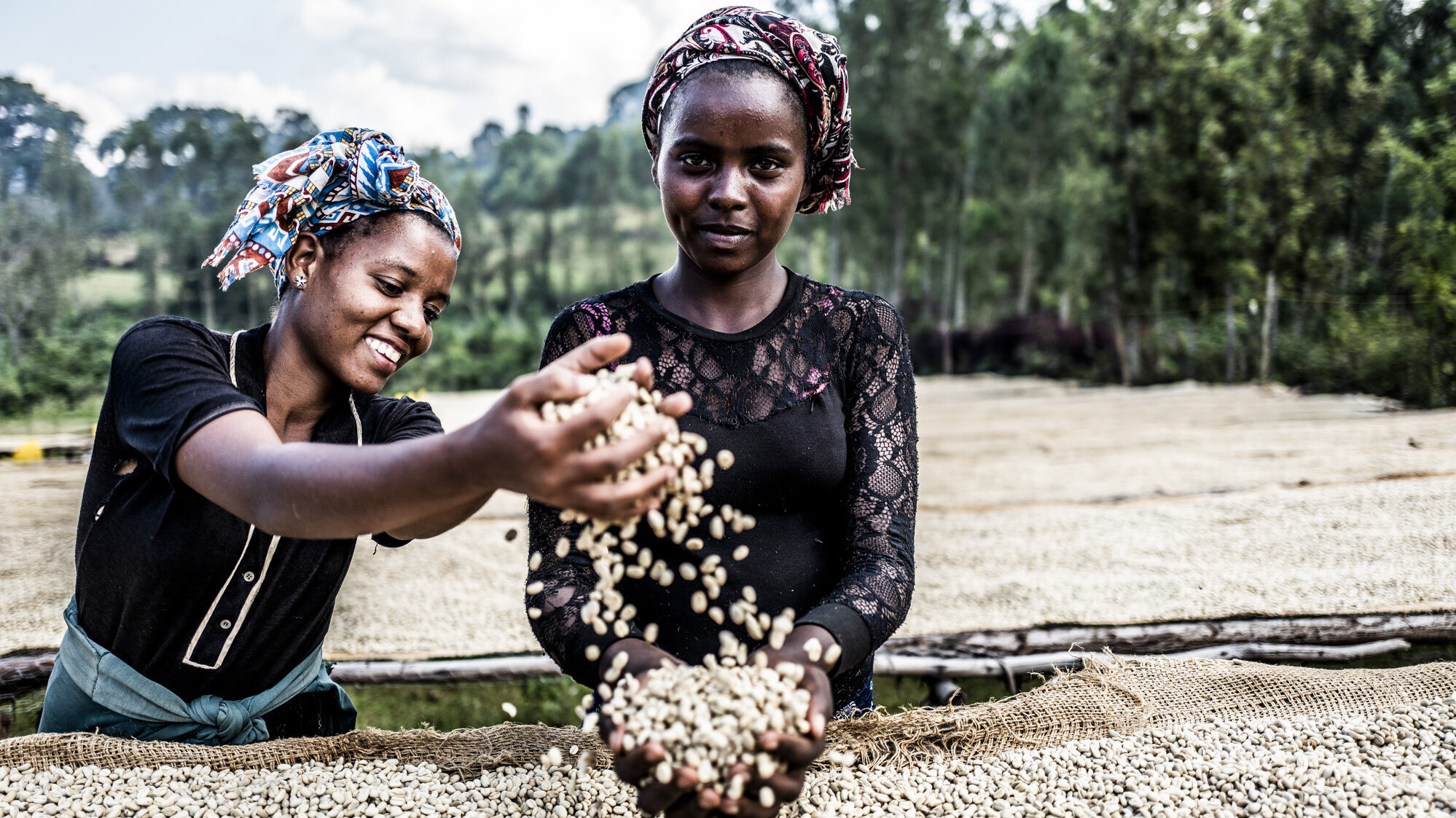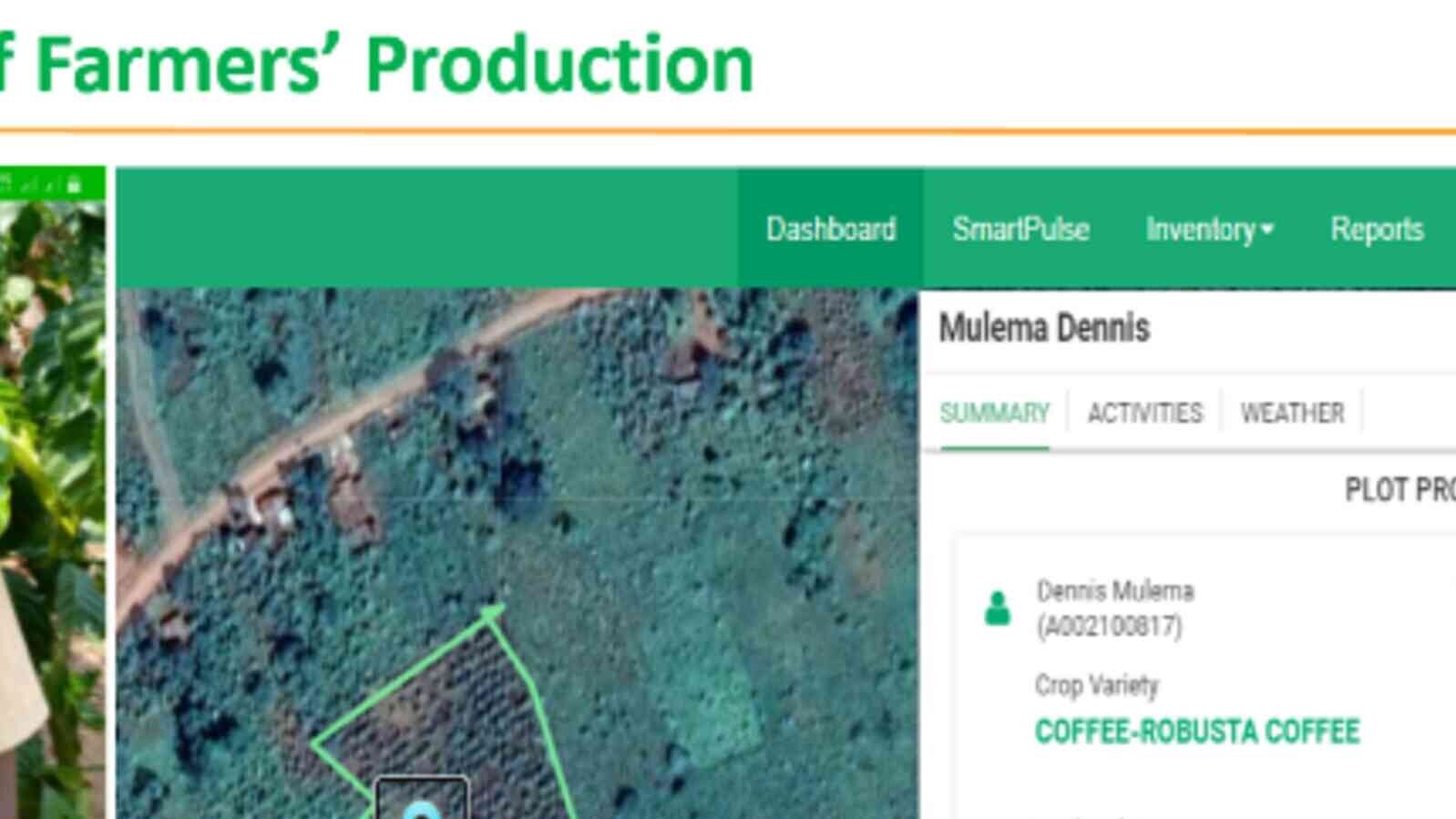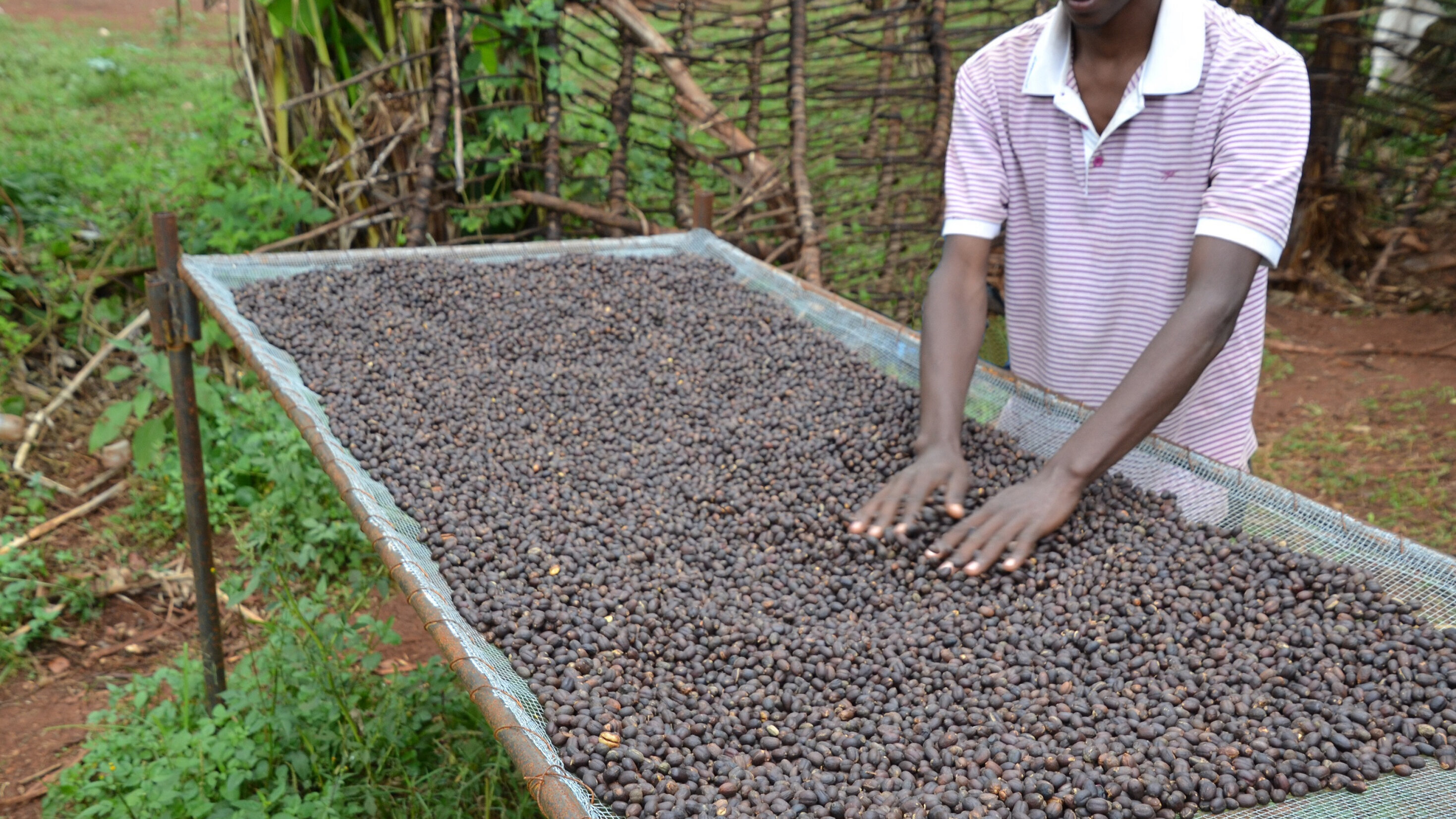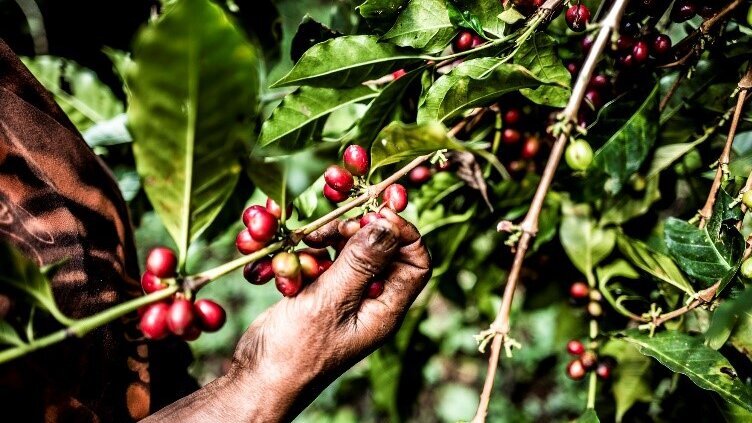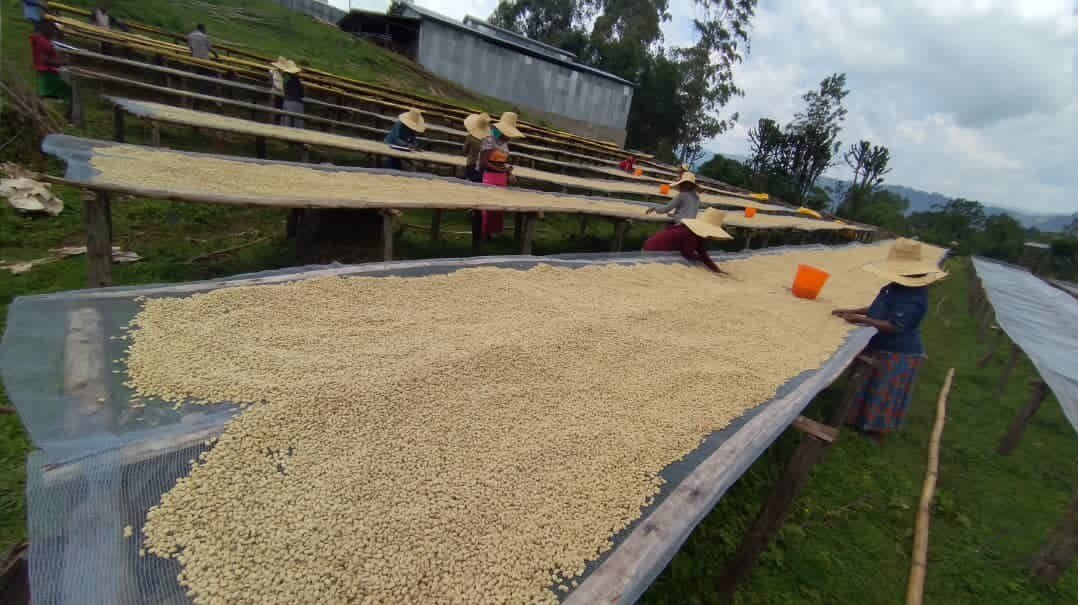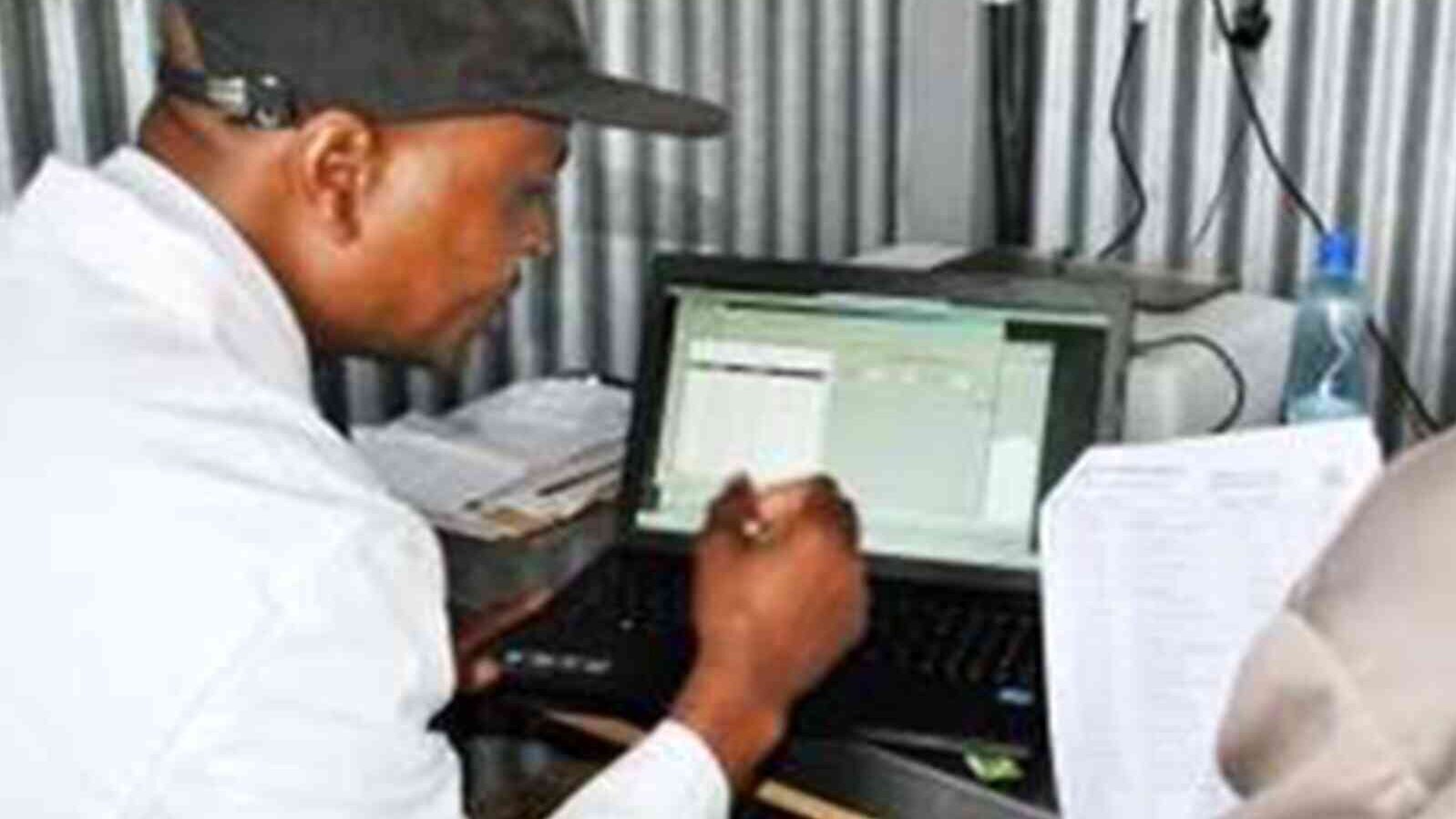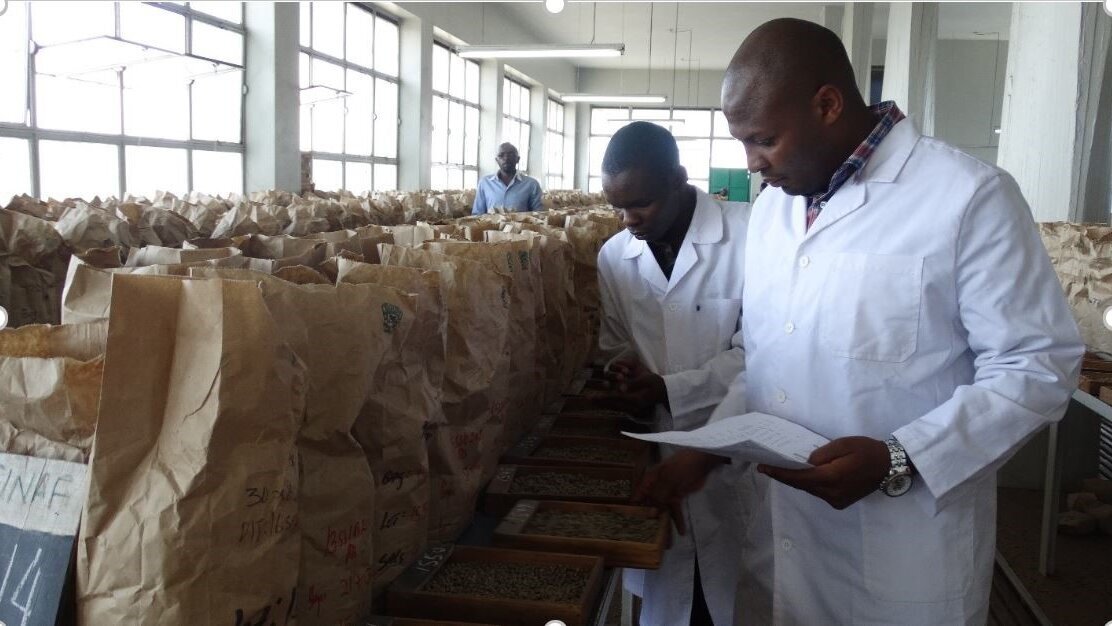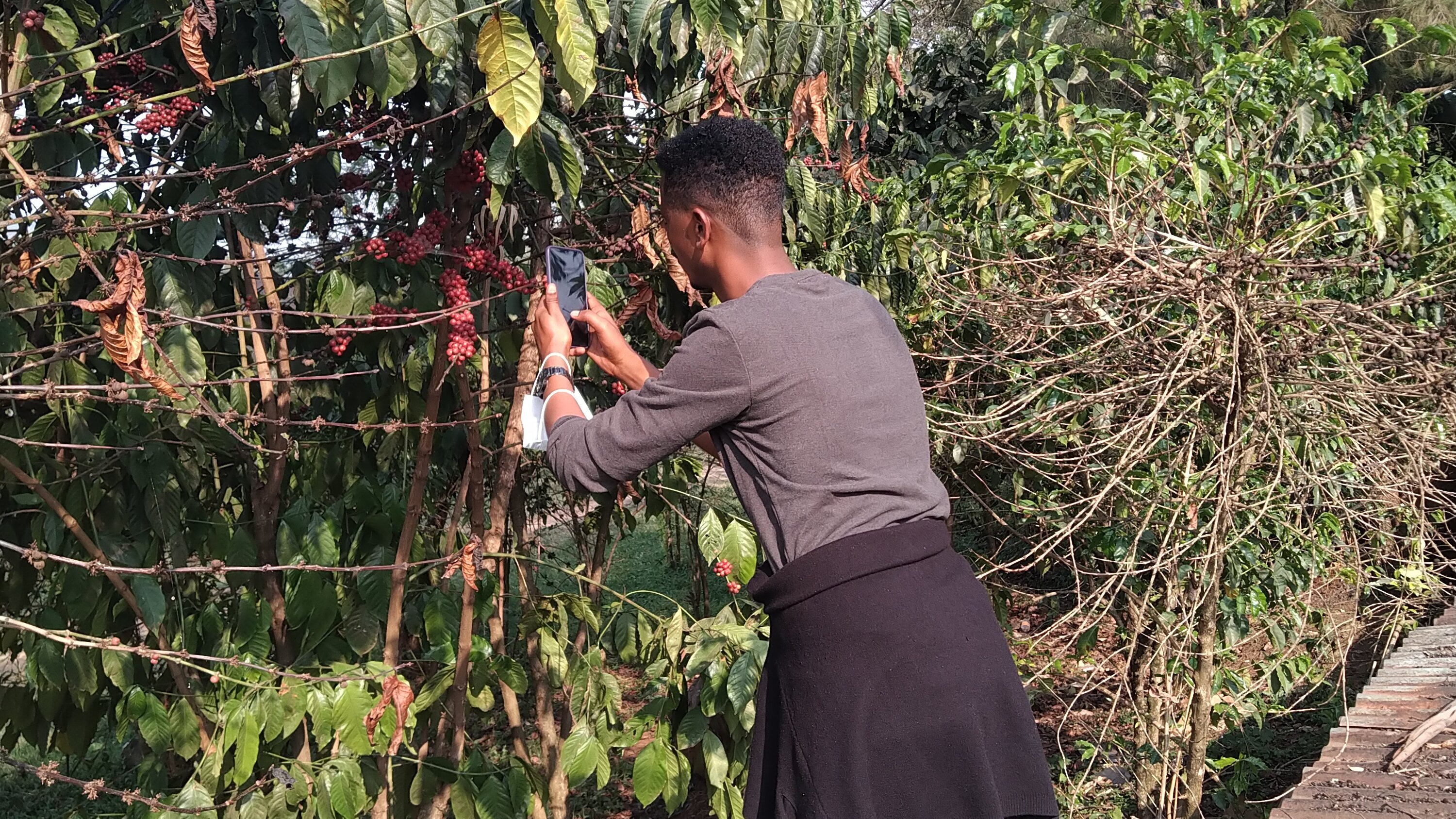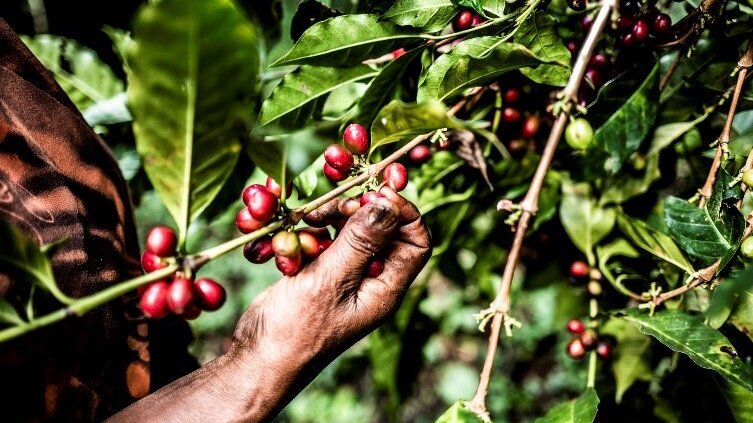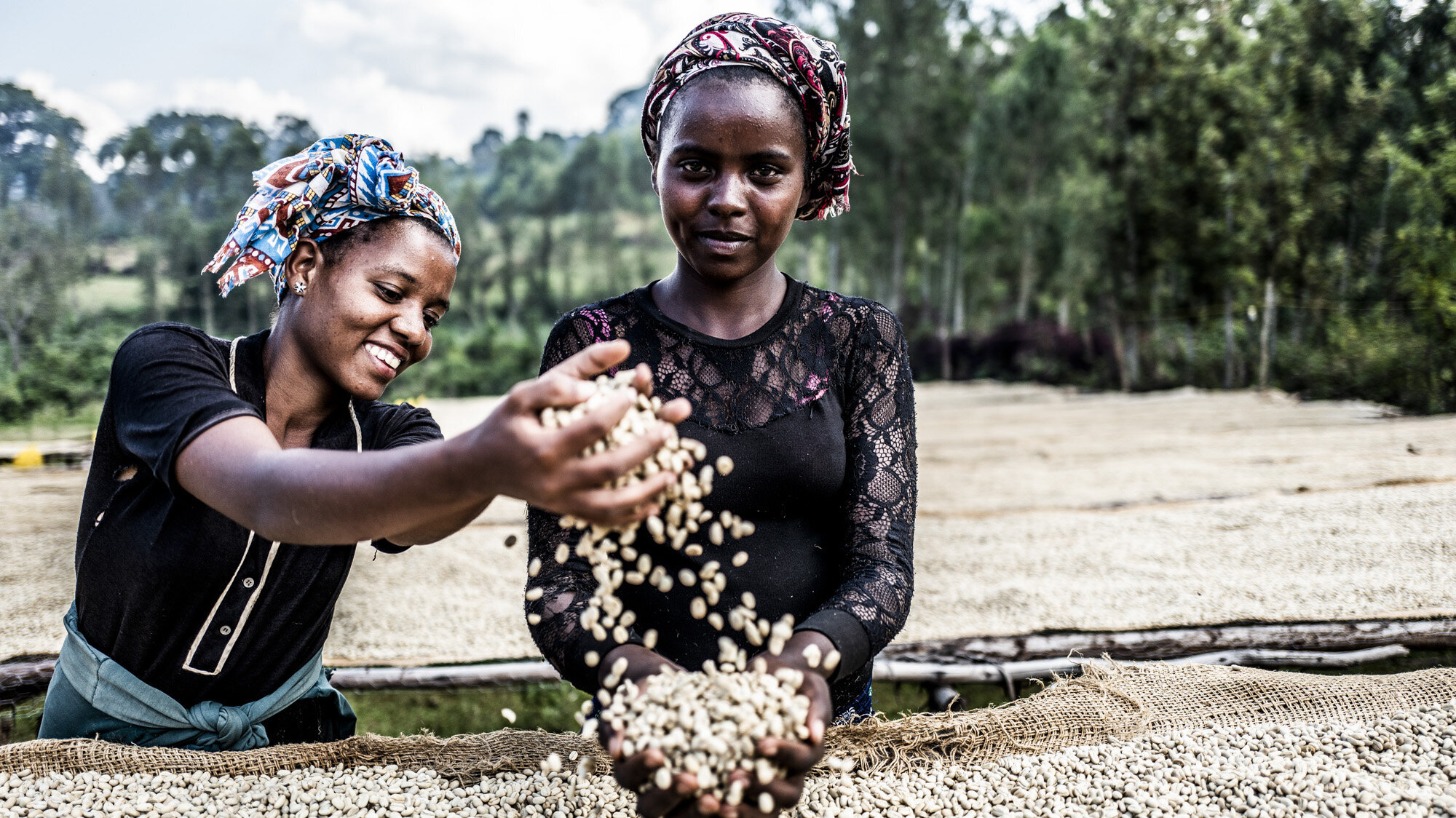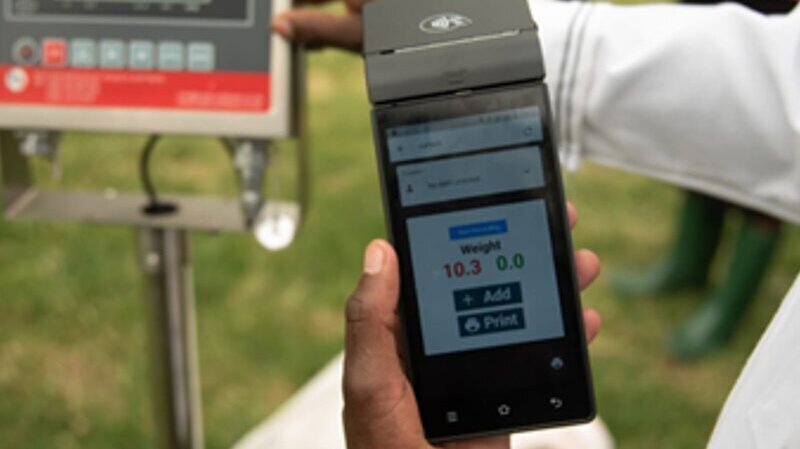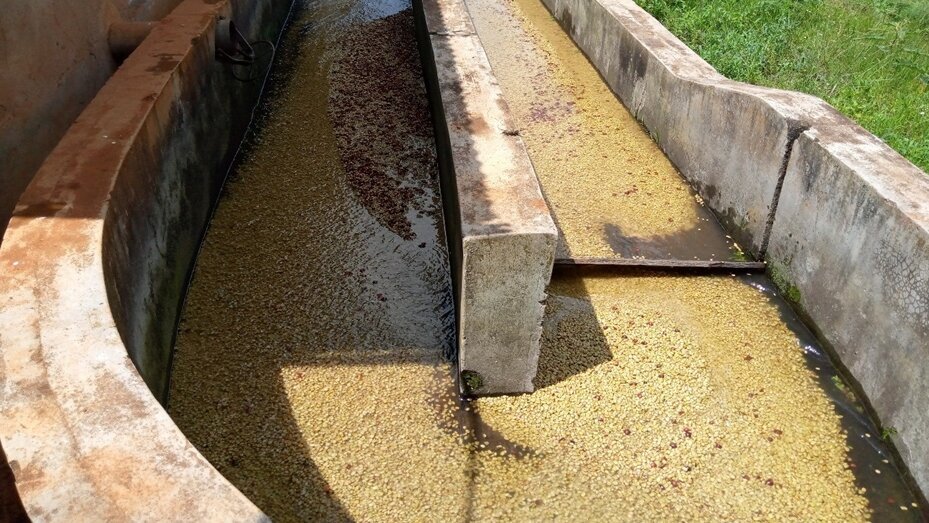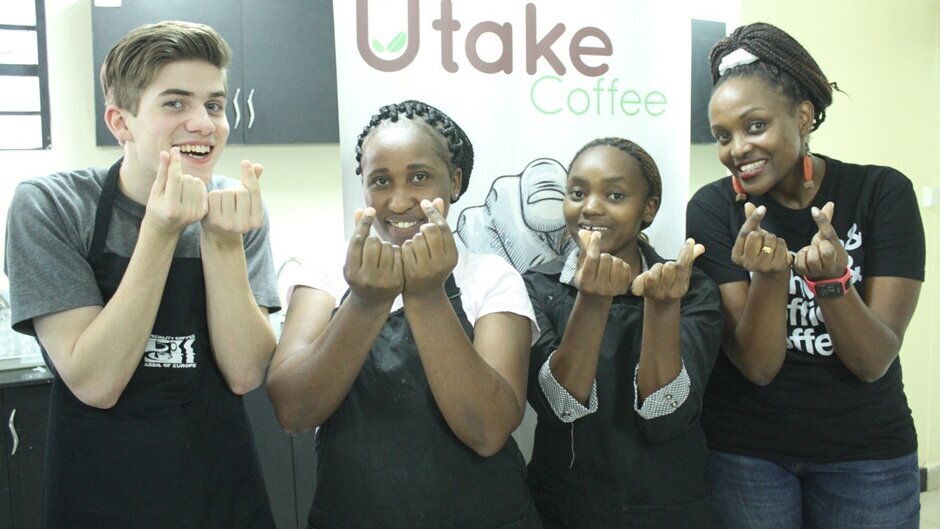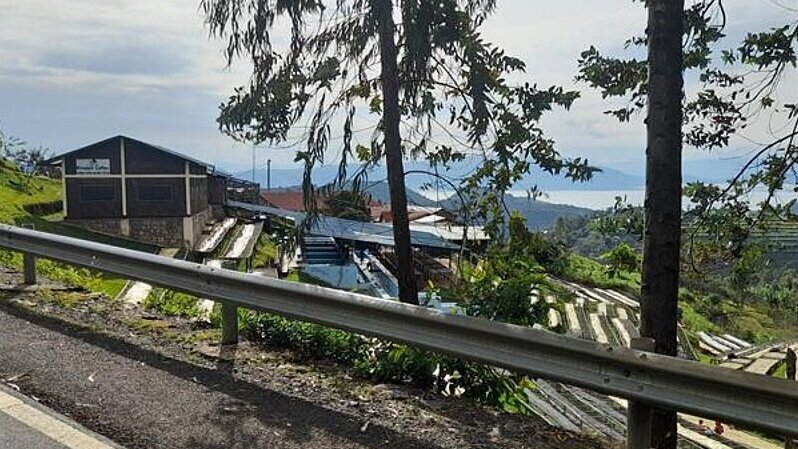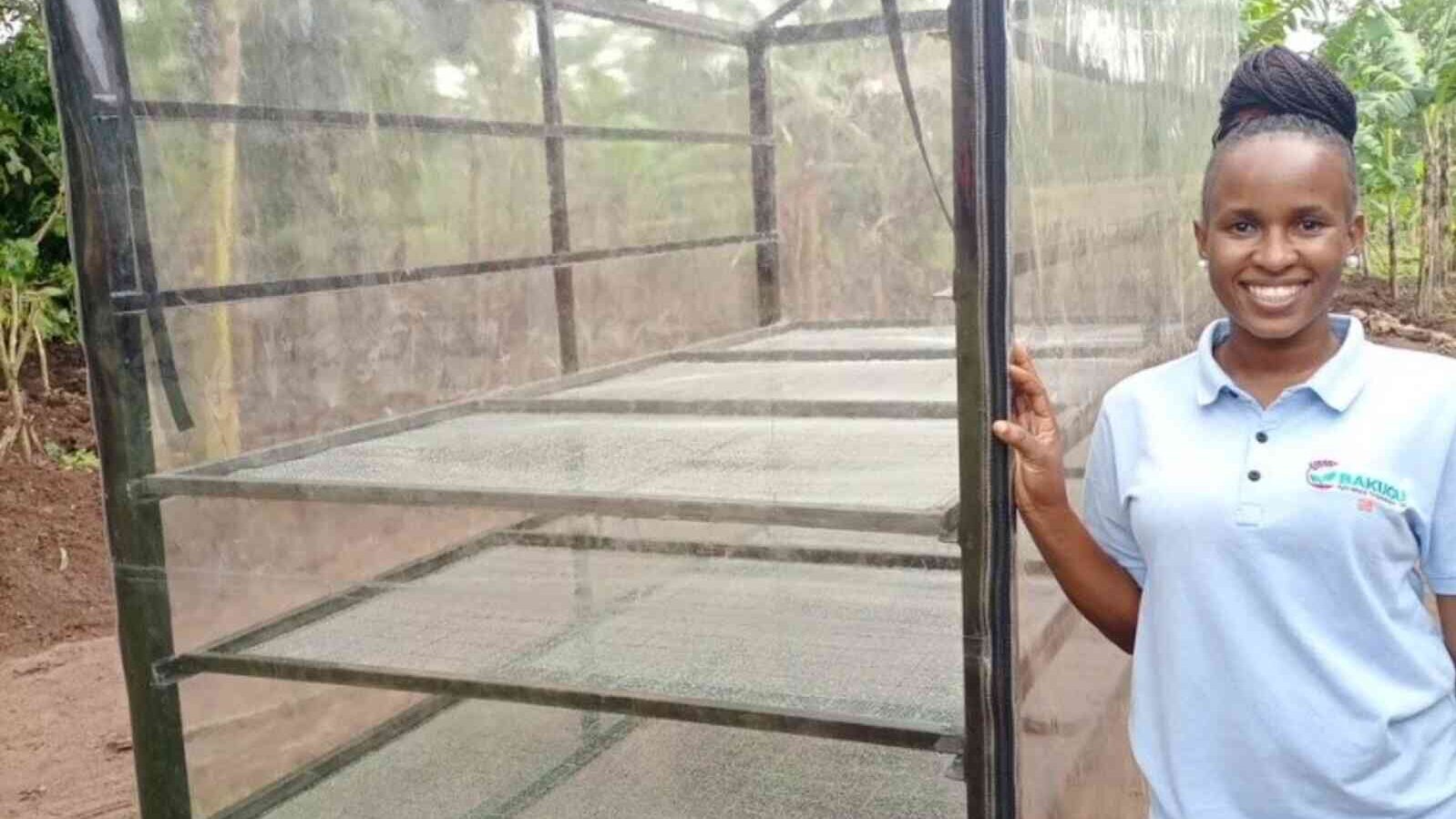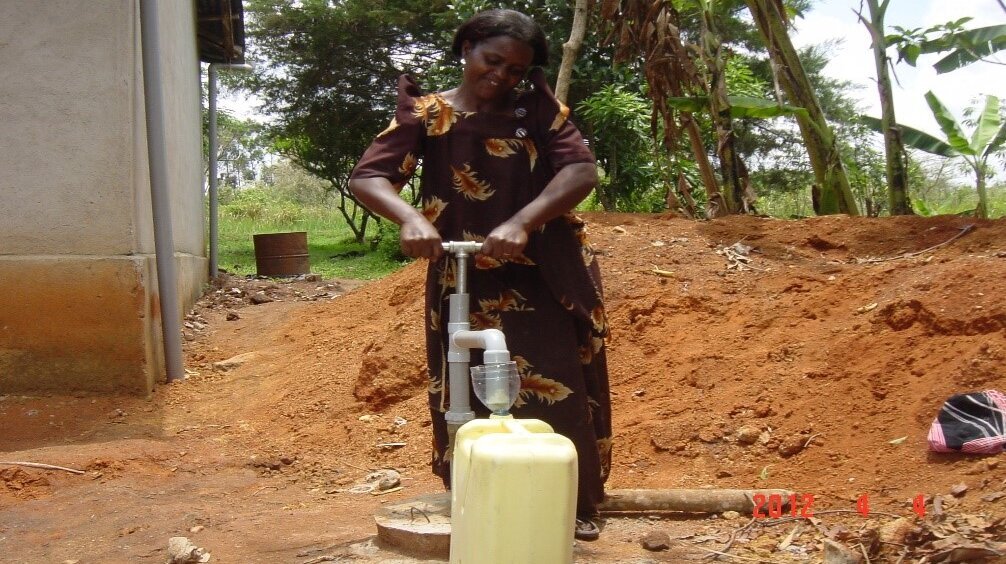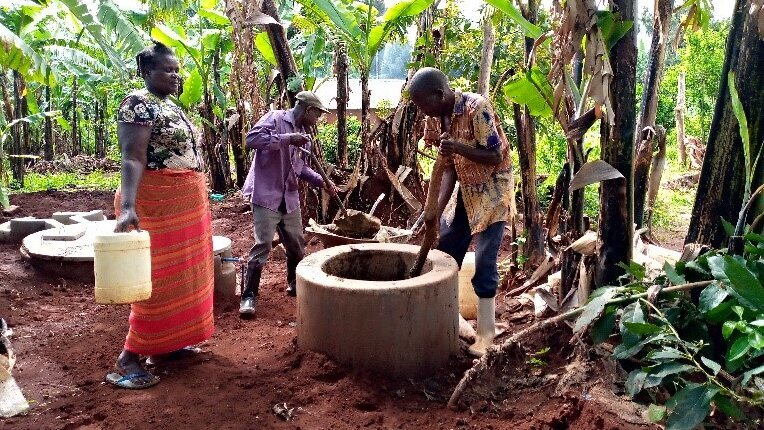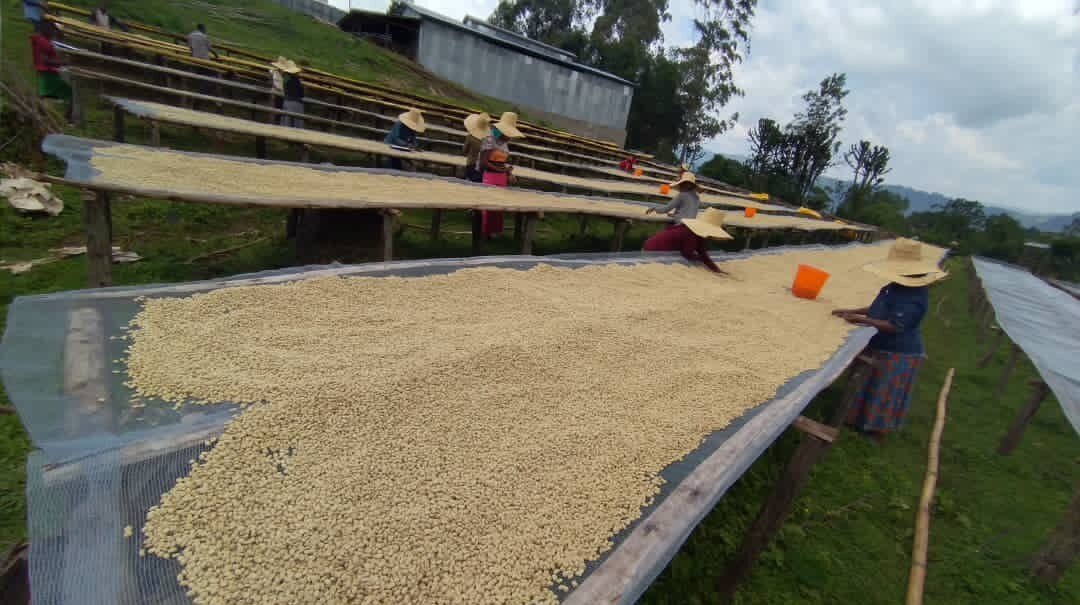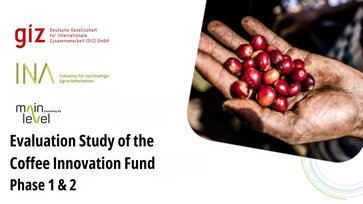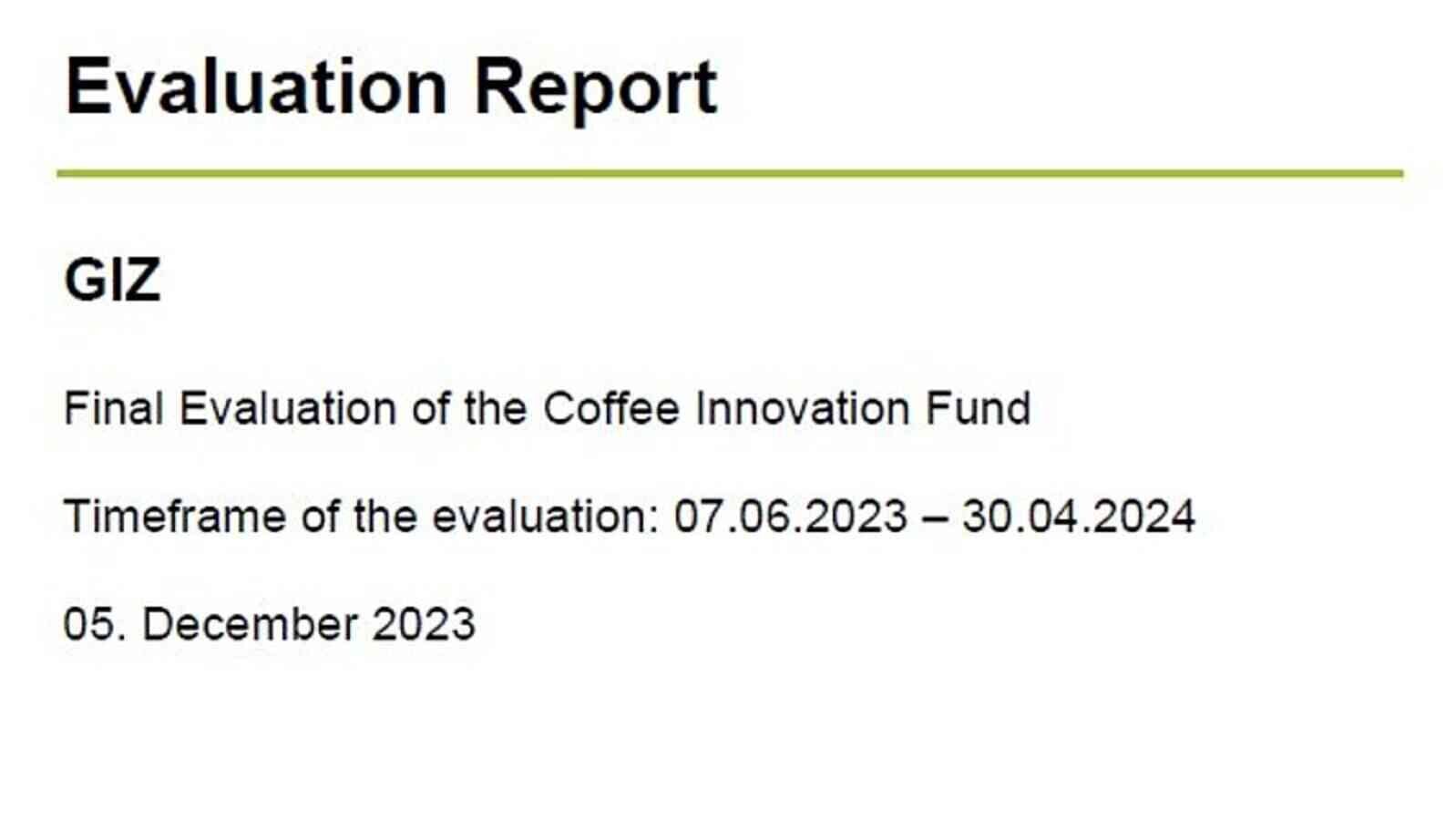Coffee Innovation Fund
Supporting innovative solutions in production, processing, and marketing to strengthen sustainability in the coffee sector and sustainably improve the incomes of smallholder farmers in Asia and Africa.
The project at glance
Supporting smallholder families, promoting innovation
How can companies and cooperatives promote sustainability in the coffee sector? The Coffee Innovation Fund (CIF), financed by the German Federal Ministry for Economic Cooperation and Development (BMZ), supported 53 pilot projects in seven countries in Asia and Africa between 2019 and 2023 to make coffee cultivation more profitable for farmers in innovative ways. Using a wide variety of approaches, the CIF projects tested innovative ideas to improve production, processing or marketing of the beans and contributed to more local value addition. Criteria such as innovation, replicability, inclusivity and potential impact played a role in the selection of proposals. Subsequently, the Deutsche Gesellschaft für Internationale Zusammenarbeit (GIZ) GmbH supported the companies and cooperatives in designing and implementing their projects. In addition to financial support, they all received access to a broad network in the coffee industry.
There were no limits to creativity: to compensate for low and fluctuating prices in the coffee sector, coffee farmers were supported with diversifying their income by adding products such as honey, cascara and patchouli, which can be produced together with coffee. The utilization of raised beds allowed for an effective use of space to dry coffee while growing vegetables underneath. A marketing campaign developed by women increased the visibility of female producers in the coffee sector and at the same time strengthened their business and marketing capacities. Digital tools recorded the CO₂ storage capacity of coffee forests and promoted their protection or provided needs-based advice on appropriate land use to small holder farmers. A mobile pulping station also enabled farmers in remote, rural areas to process and sell their coffee at a higher value. Additionally, digital databases and blockchain-based traceability systems promoted transparency, market access, and networking opportunities among cooperatives and smallholder families.
What you should know about the Coffee Innovation Fund:
- It supported the development and implementation of innovative practices, systems and tools in the coffee sector
- It was a collaboration between one or more private companies and GIZ
- It provided commercial benefits for the private sector partners while contributing to the development of the coffee sector in the country
- Projects were designed by the private sector partner and implemented with the support of third-party providers
- Projects had a maximum budget of EUR 50,000 (no cash payments), which contributed towards the costs of materials, technology and technical support
Results achieved after four years of the Coffee Innovation Fund:
- A total of 53 demand-oriented projects were piloted together with various small-scale private businesses in seven partner countries
- Implemented projects covered a wide range of topics: gender, income diversification, digitalization, climate change mitigation and adaptation, biodiversity, deforestation-free supply chains, market access
- Companies were able to pilot new products/processes, gain implementation experience and gain visibility
- Approximately 60,000 smallholders were directly involved in the implementation of projects
- Budget realized: 4.6 million Euros
These and other successes, experiences and lessons learned were shared and discussed at the international event "Four Years Coffee Innovation Fund - Results and Impacts" on April 9, 2024, with representatives from the private sector, civil society, politics and research as well as the implementation partners of the Coffee Innovation Fund. The presentation of an evaluation study emphasized, among other things, the important role of the Coffee Innovation Fund as an "innovation catalyst", and the Recipe Books were showcased as a relevant tool for the scalability and replicability of innovations. In addition, some implementation partners were given a stage to present their projects and solutions in detail. The documentation of the event can be downloaded below.
Recipe Books & Factsheets: Disseminating instructions for successful project implementation
In the context of the Coffee Innovation Fund, recipe books were developed as a step-by-step guide to help disseminate the implemented CIF projects with the necessary ingredients and recommendations for action. The central keywords here are “replicability” and “scalability”, i.e. the possibility of expanding proven and tested pilots and giving other players in the international coffee sector the opportunity to use and further develop the implementation experience gained through the CIF. The recipe books, which can be accessed here, are just as diverse as the projects themselves.
Were the objectives of the CIF achieved? What effects were achieved at target group level? And has the format of the CIF proven itself? Answers to these interesting questions can be found in an evaluation study carried out by the independent consulting firm Mainlevel Consulting AG on behalf of the CIF. Some administrative hurdles in implementation are counterbalanced in particular by the positive contribution of the CIF to testing innovative ideas. The needs-oriented approach of the CIF permitted a wide range of topics and direct involvement of the target group in the implementation countries. The partners also demonstrated a high level of motivation and ambition and implemented projects with a high degree of personal responsibility. Initial results at impact level have been achieved, even if it is still too early to draw any conclusions about long-term effects. The detailed version of the evaluation study and a short recommendation paper can be accessed below.
Evaluation Study: The Coffee Innovation Fund put to the test
Were the objectives of the CIF achieved? What effects were achieved at target group level? And has the format of the CIF proven itself? Answers to these interesting questions can be found in an evaluation study carried out by the independent consulting firm Mainlevel Consulting AG on behalf of the CIF. Some administrative hurdles in implementation are counterbalanced in particular by the positive contribution of the CIF to testing innovative ideas. The needs-oriented approach of the CIF permitted a wide range of topics and direct involvement of the target group in the implementation countries. The partners also demonstrated a high level of motivation and ambition and implemented projects with a high degree of personal responsibility. Initial results at impact level have been achieved, even if it is still too early to draw any conclusions about long-term effects. The detailed version of the evaluation study and a short recommendation paper can be accessed below.

